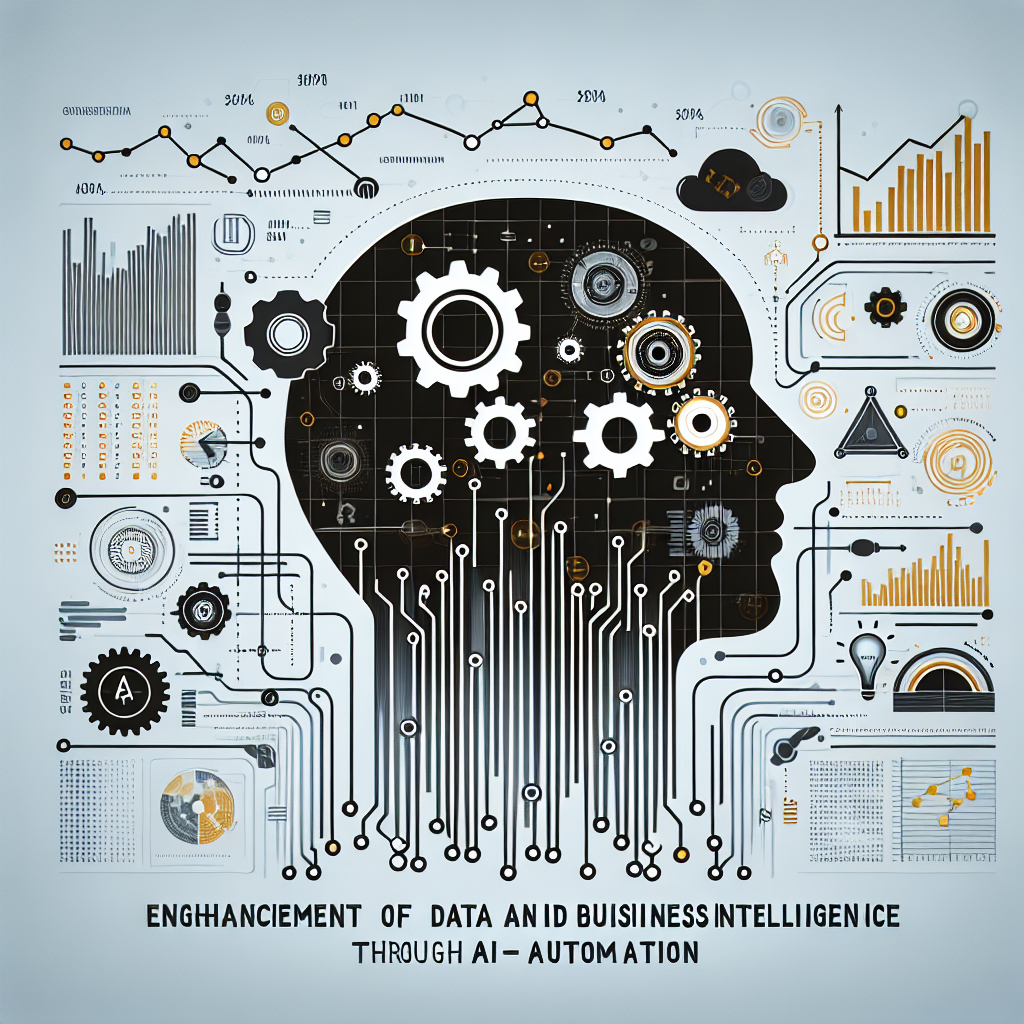In today’s digital age, data has become an invaluable asset for businesses of all sizes. From customer preferences to market trends, data holds the key to unlocking insights that can drive strategic decision-making and ultimately, business success. However, with the sheer volume and complexity of data available, businesses are increasingly turning to artificial intelligence (AI) automation to enhance their data analysis and business intelligence capabilities.
AI automation refers to the use of artificial intelligence technologies to automate processes and tasks that would typically require human intervention. In the context of data analysis and business intelligence, AI automation can streamline the process of collecting, processing, and analyzing data to generate actionable insights more efficiently and accurately than ever before.
One of the key ways that AI automation is enhancing data analysis and business intelligence is through its ability to handle large volumes of data at scale. With the proliferation of big data, businesses are faced with the challenge of processing and analyzing vast amounts of data in a timely manner. AI automation can help by using machine learning algorithms to sift through massive datasets, identify patterns and trends, and generate insights that would be impossible for human analysts to uncover on their own.
Another benefit of AI automation in data analysis and business intelligence is its ability to improve the accuracy and reliability of insights. By removing the potential for human error and bias, AI automation can deliver more consistent and objective results, ensuring that decisions are based on reliable data rather than subjective opinions. This can ultimately lead to better business outcomes and a competitive advantage in the market.
Furthermore, AI automation can also enhance the speed and efficiency of data analysis and business intelligence processes. By automating repetitive tasks such as data cleaning, visualization, and report generation, AI can free up human analysts to focus on more strategic activities, such as interpreting insights and making recommendations. This can lead to faster decision-making and a more agile approach to data-driven decision-making.
In addition to improving efficiency and accuracy, AI automation can also enable businesses to uncover new and valuable insights from their data. By using advanced machine learning algorithms, AI can identify correlations and patterns in the data that human analysts may have overlooked, leading to new opportunities for innovation and growth. For example, AI can help businesses identify customer segments with specific preferences or behaviors, enabling targeted marketing campaigns and personalized customer experiences.
Overall, AI automation is revolutionizing the field of data analysis and business intelligence, enabling businesses to leverage their data more effectively and make smarter decisions. By automating repetitive tasks, improving accuracy and reliability, enhancing speed and efficiency, and uncovering valuable insights, AI is helping businesses stay ahead of the competition and drive growth in an increasingly data-driven world.
FAQs:
1. What types of AI technologies are commonly used in data analysis and business intelligence?
– Some common AI technologies used in data analysis and business intelligence include machine learning, natural language processing, and computer vision. These technologies can help businesses automate data processing, analyze text and speech data, and extract insights from visual data, among other tasks.
2. How can AI automation improve the accuracy of data analysis?
– AI automation can improve the accuracy of data analysis by removing the potential for human error and bias. By using machine learning algorithms to analyze data, AI can deliver more consistent and objective results, ensuring that decisions are based on reliable data rather than subjective opinions.
3. What are some examples of how AI automation is being used in data analysis and business intelligence?
– Some examples of how AI automation is being used in data analysis and business intelligence include predictive analytics, customer segmentation, anomaly detection, and natural language processing. These applications can help businesses uncover insights, optimize processes, and drive strategic decision-making.
4. How can businesses leverage AI automation to enhance their data analysis capabilities?
– Businesses can leverage AI automation to enhance their data analysis capabilities by investing in AI technologies, building data science teams, and implementing AI-powered tools and platforms. By incorporating AI into their data analysis workflows, businesses can streamline processes, improve accuracy, and uncover valuable insights from their data.

